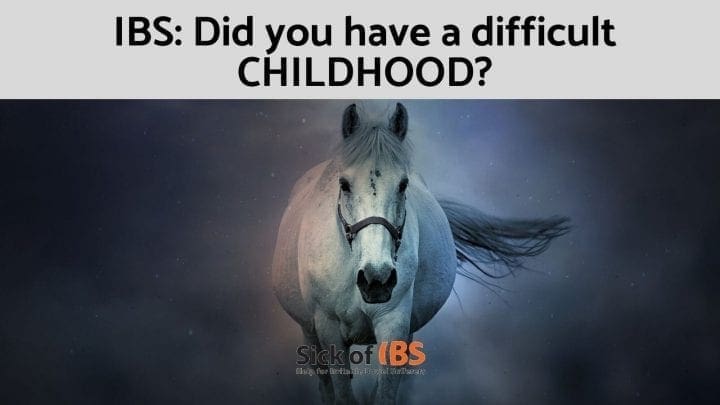
You may not see the link between your IBS and a difficult childhood – but it is there. I’d like to help you become aware of it, so that your past doesn’t have to weigh on your future.
Depending on the life you have lived, you may feel like you have had enough pain for one lifetime, and you just want it to stop.
So you may have locked the past in a dark room and thrown away the key.
The trouble is, situations keep coming up that mirror the past. And that doesn’t feel good.
I have one essential (but uncomfortable) question for you:
Did you feel safe as a child? Do you feel safe now?
If the answer is “no”, or “not all the time”, read on. This could be what you have been needing to see…
Would you like to feel free instead?
The key is deep within your mind and your nervous system
If you had a difficult childhood, you have been on alert for danger. Either because of a particular event, over a period of time, or constantly.
You have probably already read about the body’s fight or flight response.
But can you see what this response has to do with your IBS symptoms and digestive issues?
There are three major responses to percieved “danger”:
The first two active behaviours: FIGHT or FLIGHT. In both cases your body prepares for action. All your energy goes to your limbs so they can protect you or outrun the danger – and digestion is paused.
The third option is to FREEZE. This can be used to cease any movement and become invisible to avoid attack – or one of analyzing a situation before taking action.
Your options in a difficult childhood
As children, if we do not feel safe, our options are limited:
FIGHT: We are often too small/weak to fight off an attack. So we have to turn to other options.
FLIGHT: We may be able to run and hide. Or we may not be able to physically run away – but internally we can be running. This inner nervousness can be expressed as pushing food through us quickly, and can result in diarrhea. This trigger pattern can continue through teens and into adulthood. (I have seen this in coaching clients.)
FREEZE: For children, freezing is a way of making themselves as small as possible in an attempt to appease the situation. This slows digestion and transit down even further and can create constipation if experienced over a period of time. (This was me:)
Either way if you had a difficult childhood and regularly felt unsafe, your nervous system could well have become hypervigilant. AND maybe your nervous system is still sensitive (this can become a lifelong pattern). Excess cortisol levels are likely to make you crave sugar and carbs. (The fermentation of excess sugar is known to create bloating.)
How do I know all this? Because I lived in an angry home myself, and my coaching clients did too.
If you have long-term IBS, you have probably still are triggered by situations from the past. Your subconscious mind hasn’t caught up with the fact that you have more options today.
The good news is that there are ways to change those active trigger loops from the past, and appease our nervous system – and our IBS. I talk about them often on this blog as this is how I released my own chronic IBS symptoms.
Now you have this knowledge, what is next for you?
9